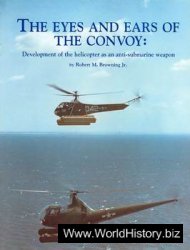This was the social and cultural context for the foreign policy of detente in the 1970s. Scholars of detente generally point to the importance of near nuclear parity and a general balance of power in bringing the United States and the Soviet Union to embrace more stable relations. They also point to the growing rift between Moscow and Beijing, and the opening this created for Washington to position itself between these two states. American desperation to end the Vietnam War surely contributed to detente as well, encouraging citizens and leaders in the United States to accept a less ideologically strident foreign policy.729
President Nixon and his special assistant for national security affairs, Henry Kissinger, embraced these strategic transformations, and they attempted to turn them to American advantage. They sought to use improved great power relations for more effective leverage over local events around the globe, with less direct American force. This was the basis for the "Nixon Doctrine," designed to avoid making countries "so dependent upon us that we are dragged into conflicts such as the one that we have in Vietnam."730 Amidst powerful domestic and allied dissent against American interventions, detente was an attempt to compensate for internal weakness with diplomatic acumen. It was a reaction to domestic pressures for peace and fears of continued Cold War militarization. "We were," Kissinger explained, "in a delicate balancing act: to be committed to peace without letting the quest for it become a form of moral disarmament, surrendering all other values; to be prepared to defend freedom while making clear that unconstrained rivalry could risk everything, including freedom, in a nuclear holocaust."731
In his memoirs, Kissinger immediately turns from this description of detente to a discussion about the need to "outmaneuver" domestic dissent - from "liberals" who wanted to see more commitment to peace and reform in American actions, and "conservatives" who demanded stronger confrontation with Communism.732 Political leaders in West Germany, Britain, and other states faced the same dichotomous pressures. The counter-culture’s attack on Cold War assumptions, and the backlash against this challenge, inflamed these debates. The domestic violence and extremism of the period made it difficult to build bridges between points of view. In contrast to their predecessors, leaders in the 1970s had to formulate international policy at a time when their authority was deeply contested at home. President Nixon and West German chancellor Willy Brandt, two of the most powerful international leaders of the 1970s, both resigned from office due to domestic scandals, inflamed by public distrust of leaders. The making of detente reflected the unmaking of the Cold War consensus.
Kissinger admitted this. When asked in 1971 "where the administration wants to end up after four years?" he invoked both the crisis of values and the new international environment that characterized the period. "This administration came into office when the intellectual capital of US postwar policy had been used up and when the conditions determining postwar US policy had been altered," he explained.
We had to adjust our foreign policy to the new facts of life. It is beyond the physical and psychological capacity of the US to make itself responsible for every part of the world. We hope in the first term to clear away the underbush of the old period. In the second term, we could try to construct a new international settlement - which will be more stable, less crisis-conscious, and less dependent on decisions in one capital.733
The "underbush of the old period" included the assumptions about omnipotent power that the counter-culture condemned. Constructing a "new international settlement" meant applying "law and order" to foreign policy, providing a framework for rationality, reasonableness, and moderation in the relations between societies - despite the contrary pressures at home. Frequent "back channel" communications between leaders would encourage cooperation, establish basic norms for international conduct, and insulate policy from domestic interference. This was an effort, Kissinger and the Soviet ambassador Anatolii Dobrynin agreed, to make international civility "irreversible."734
The two superpowers formalized their commitment to international "law and order," rather than revolutionary change, in the Agreement on Basic Principles - officially "The Basic Principles of Relations between the United States of America and the Union of Soviet Socialist Republics" - signed in Moscow on May 29, 1972. The document spoke explicitly about "rules of conduct" that would assure "peaceful coexistence" and avoid any "dangerous exacerbation" of relations.’56 It encouraged consultation among state leaders, and it diminished the importance of ideology, nationalism, and other moral claims. The Agreement on Basic Principles aimed to silence cold warriors and counter-cultural critics at the same time.
In addition to basic strategic considerations, detente represented an effort to build a new culture for international affairs. It was, in this sense, the foreign mirror of domestic change. Internal discontent and disorder forced leaders to reconceptualize their foreign-policy aims and capabilities. Challenges to assumed Cold War values motivated policies that did not hinge on traditional ideological claims. Men like Kissinger and Dobrynin feared the backlash as much as the counter-culture, and they worked to craft a new middle ground. They emphasized "law and order" in the international system. They attempted to isolate policy fTom public influence. They defined themselves against both the counter-culture of the late 1960s and its opponents.57




 World History
World History









